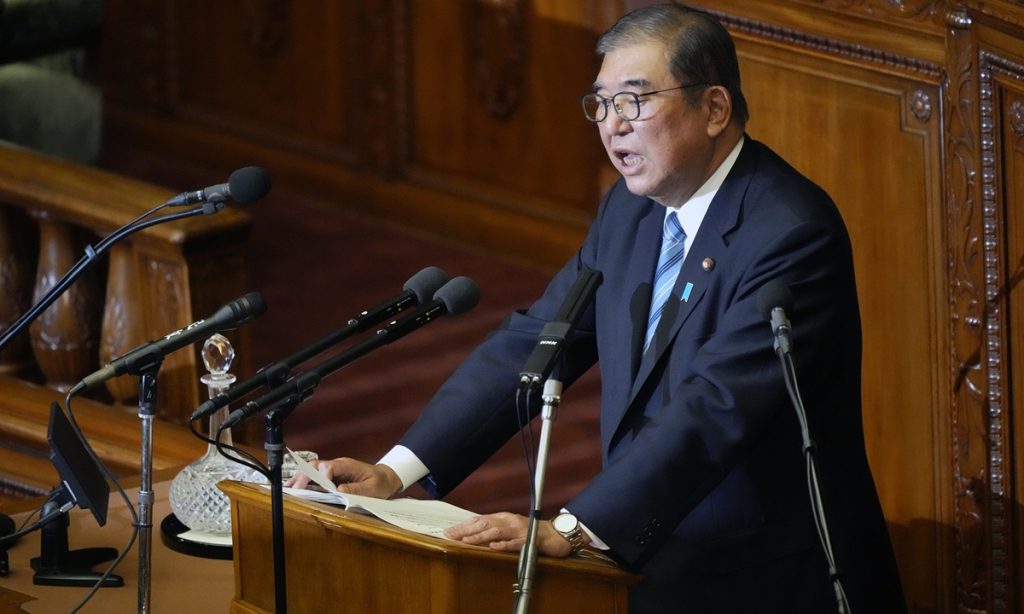Japan expected to ‘translate words into actions,’ as Ishiba vows to promote mutually beneficial ties with China, says Chinese expert

Japanese Prime Minister Shigeru Ishiba said he would promote mutually beneficial Japan-China relations and communication at every level to build "constructive and stable ties" on Friday. Ishiba's remarks are welcomed, and if the words can be translated into actions, there is hope for a recovery in China-Japan relations, a Chinese expert told the Global Times on Saturday.
Ishiba delivered a policy speech in the Lower House on Friday that underscored his leadership of a minority government, and emphasized his intent to communicate with China at all levels, including leaders' summits, to promote a "mutually beneficial strategic relationship," according to Japanese media Asahi Shimbun.
Lü Chao, an expert on the East Asian studies at the Liaoning Academy of Social Sciences, told the Global Times on Saturday that Ishiba's remarks are welcomed, and if he can actually do what he said, there is hope for a recovery in China-Japan relations.
"A thawing China-Japan relationship will not only benefit the two countries and but also greatly benefit the peace, stability and development of the Northeast Asia, especially to the development of China-Japan-South Korea cooperation mechanism," Lü noted.
"But we also noticed that there are still many hostile voices among Japanese politicians that call for closely following the US to contain and confront China, so when we look at Ishiba's latest remarks on his view to develop Japan-China ties, we should focus more on what concrete actions he will take," Lü said.
The Japanese prime minister expressed willingness to hold frank discussions with US President-elect Donald Trump in the policy speech. Ishiba said he wants to raise the Japan-US alliance to a higher level, according to NHK.
In his speech, Ishiba did not mention his pet projects of revising the Japan-US Status of Forces Agreement or creating an Asian version of the North Atlantic Treaty Organization (NATO), said the Asahi Shimbun.
Li Haidong, a professor at China Foreign Affairs University, told the Global Times on Saturday that Ishiba's remarks have reflected Japan's traditional stance of seeking economic benefits from China while standing close with the US for security.
"Japan's ties with China are deeply affected by the US policy toward China, and to what extent Ishiba can do to promote the bilateral relationship with China depends to how he could withstand and manage pressure and interruption from outside," Li noted.
How Washington will handle the US ties with China and Japan is key for us to observe to what extent Ishiba could do to promote Japan's ties with China, Li said, stressing that if Japan can stay away from interfering in China's domestic affairs and avid challenging China's national interests, especially core interests like the Taiwan question, the two countries will be able to build stable and constructive ties.